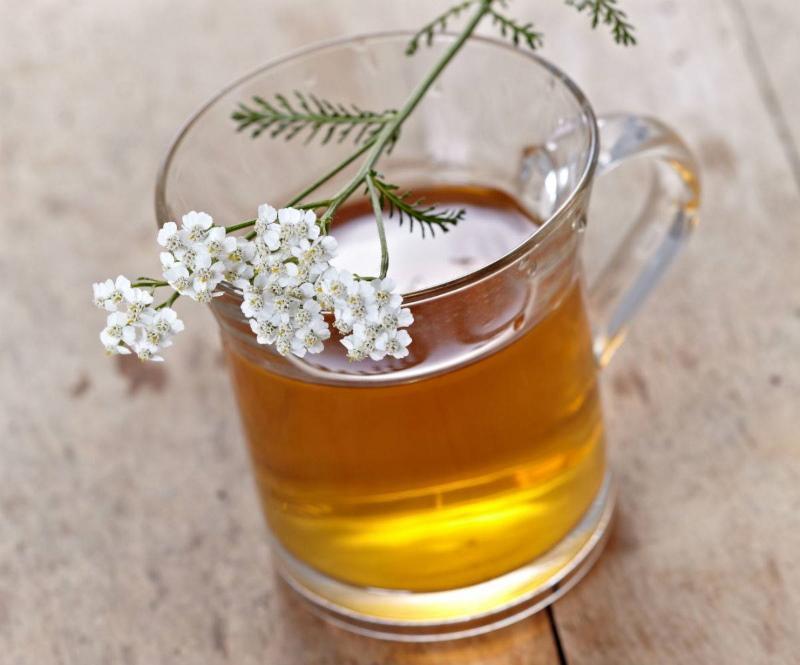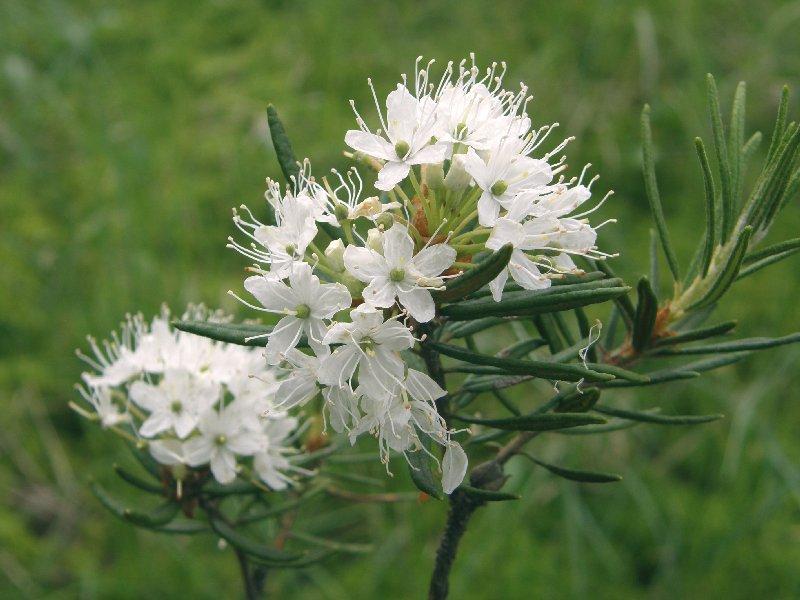Intoxicating and poisonous, but such a useful rosemary - medicinal properties and contraindications
 This swamp dweller can often be found in the garden, because evergreen bushes look impressive, especially when delicate white flowers bloom. However, the plant was not famous for its decorativeness. Ledum - medicinal properties and contraindications of this herb have been widely and for a long time used in folk medicine. And all because of the high amount of specific essential oils contained in the leaves, twigs and flowers. It was they who endowed the wild rosemary with a unique, sharp and even slightly unpleasant aroma. But at the same time, oils and other useful substances can also do a good job, saving us from various diseases.
This swamp dweller can often be found in the garden, because evergreen bushes look impressive, especially when delicate white flowers bloom. However, the plant was not famous for its decorativeness. Ledum - medicinal properties and contraindications of this herb have been widely and for a long time used in folk medicine. And all because of the high amount of specific essential oils contained in the leaves, twigs and flowers. It was they who endowed the wild rosemary with a unique, sharp and even slightly unpleasant aroma. But at the same time, oils and other useful substances can also do a good job, saving us from various diseases.
Ledum - medicinal properties and contraindications

In late spring, wild rosemary blooms in small flowers, collected in corymbose inflorescences with a sweet and simply stupefying smell. The most common is white rosemary, but there are types with cream and pink flowers.
The entire aerial part of the plant contains many useful substances:
- essential oils;
- tannins;
- flavonoids;
- different acids;
- minerals;
- vitamins;
- enzymes.
Leaves, along with shoots, are harvested in spring or early summer, when wild rosemary blooms. It was during this period that they contain the most essential oils, and their highest percentage is contained in young growth.
How wild rosemary works on the human body
 Twigs and leaves are used to make tea, decoctions, infusions, tinctures, oils and even ointments and drops. These funds help in the treatment of various diseases, namely:
Twigs and leaves are used to make tea, decoctions, infusions, tinctures, oils and even ointments and drops. These funds help in the treatment of various diseases, namely:
- promote the production of phlegm and facilitate the course of bronchitis, tuberculosis and whooping cough;
- relieve itching and inflammation on the skin, especially after an insect bite;
- maintain salt balance by stimulating sweat and urination;
- stop inflammatory processes in the body, having a bactericidal and disinfectant effect;
- dilate blood vessels and have hypotensive properties.
The most effective rosemary in diseases of the respiratory tract, as well as in diseases of the skin and joints... It is also taken in the complex treatment of diabetes mellitus, hypertension, dysentery.
In what cases it is impossible to use rosemary for treatment
 Before starting treatment, it is worth remembering that wild rosemary still belongs to poisonous plants. The scent of its flowers causes headaches and confusion.The same symptoms can appear while taking funds from rosemary, if you are allergic to it.
Before starting treatment, it is worth remembering that wild rosemary still belongs to poisonous plants. The scent of its flowers causes headaches and confusion.The same symptoms can appear while taking funds from rosemary, if you are allergic to it.
In addition, it is not recommended to give such medicinal infusions to children, pregnant and lactating women. It is strictly forbidden to use rosemary in the presence of serious problems with the liver and kidneys (hepatitis and glomerulonephritis). And also hypotensives due to the properties of wild rosemary to lower blood pressure.